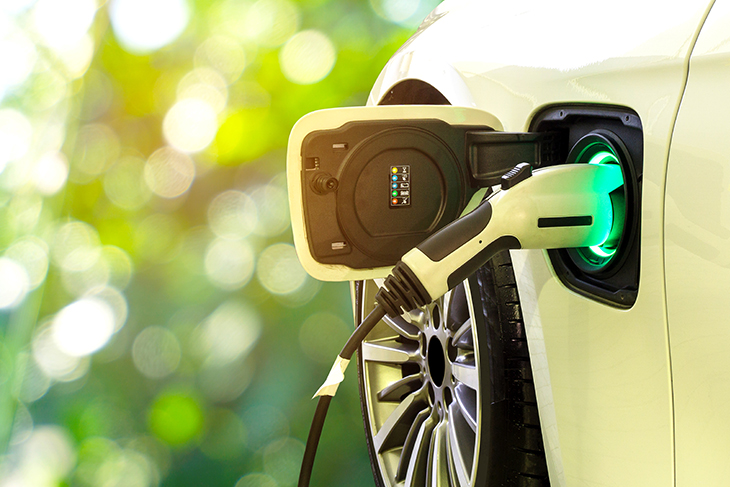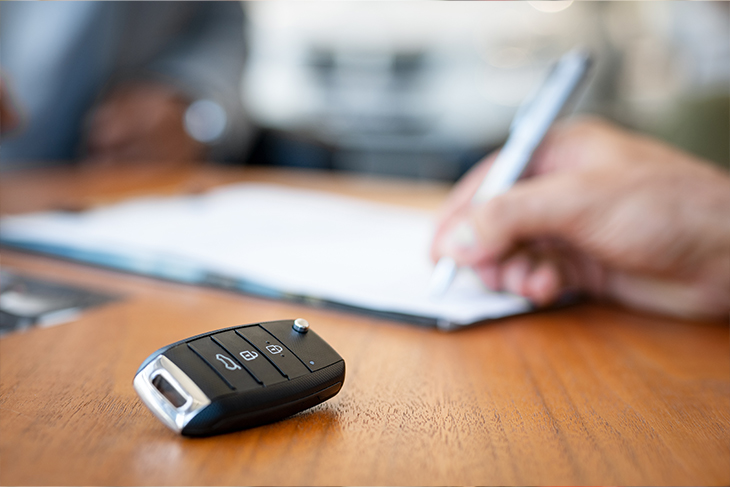When it comes to buying a car, whether it’s one that’s brand new or a used vehicle, there are a lot of things to consider. After all, cars are an expensive purchase. So you want to ensure that you are getting a good deal, a good car and a good buying experience.
The good news is that buying a car doesn’t need to be complicated. In fact, it can be a straightforward process if you know all the things you need to consider. So we’ve put together the Creditplus ultimate guide to buying a car. Ready to get started?
Choosing the right car
The first stage of the car buying process is to make sure you are choosing the right car. What do we mean by ‘right’? One that does what you need it to do, one that you can afford to run, and one that you are happy and comfortable to drive. You might already have the ideal make and model in mind. But even if you do, there are some things you should consider before you proceed to the next step.

How will you use the car?
The daily use of your car should be what drives your purchasing decision. So how will you be using your vehicle? We can look at it in the same way as insurance companies do: social, domestic, commuting and work. Most people will fall into several categories.
Social: Social use of the car is for someone who might only need the car at the weekend or in the evenings. There might be the occasional road trip now and then, but most journeys will be short and local. You can prioritise fun over practical.
Domestic: Very similar to social, domestic is how we’d describe a car used by parents. One that’s used for the school run, ferrying children back and forth to activities and birthday parties, and trips to the supermarket. Practical and safe over other considerations.
Commuting: If you drive a distance to work each week, then your car probably fits the commuting description. You’ll want something that’s comfortable and interesting to drive, especially if it’s a distance on the motorway.
Work If you use your car for work, for example driving to appointments or meeting clients, then you’ll need one that can cope with the increased mileage. If you’re off the road, then you’re not earning, so you’ll need it to be reliable too.
What about the colour?
If you don’t care about the colour, then you have more flexibility. But the colour of your car can be about more than just which is your favourite hue. Black is seen as more professional, where as silver has a futuristic edge, and red is the colour of passionate people. So why not look at some of the different meanings behind car colours and see which matches your personality?
What type of power?
Choosing the type of power for your car is a bigger consideration than in the past, thanks to upcoming law changes and improvements in technology.
Petrol: Still the most common option, petrol has the advantage of being the cheapest per litre. You don’t have to worry about range with a petrol car as much as you do with an electric or hybrid.
Diesel: If you choose diesel, you’re likely to get more miles per gallon than with a petrol engine. Slightly more expensive than petrol, there are also areas in city centres where you might not be able to drive. You’ll need to check the air quality rating when you buy.
Hybrid: Along with PHEV (plugin hybrid electric vehicles), hybrids mean you get the benefit of both petrol and electric engines.
Electric: With an ever-growing charging network and improving electric batteries, electric cars are now a viable alternative to fossil fuels. But you will want to check that there are enough charging stations in your area, and that you can install a charger at home.

Security
Another thing you have to consider is where you are going to keep the car. If it’s on the road, do you need something with improved security features? Or does this potential purchase mean that it’s time you finally sorted out the driveway or clear out the garage?
Don’t forget about your budget
You also need to work out what your budget is. Whether that’s the total lump sum you have to buy a car outright, or how much you can afford to spend on monthly repayments, knowing this in advance will help you narrow down the cars you can afford to buy.
Finding the right car
Now you’ve worked out what type of car you want to go for, you’ll need to start your search. The good news is that there has never been this many car buying options available to you.

Where will you buy the car from?
There are four main areas where you can buy your car from.
Main agent: These are the big car makers (e.g. Vauxhall, Ford, Audi) and their licensed dealers. Not only will they have new models from their specific manufacturer, but they will also sell used cars that were part-exchanged for their new models.
Used car dealerships: Where they once had a reputation for being dodgy dealers, the competitive market means a used car showroom has to be competitive. That can range from attractive finance and part exchange deals, to extended warranties and test drive periods.
Online car sites: Many online car sites provide a personalised finance service, so you can find the car you want and the finance you need to pay for it. You can often search a network of used car dealerships across the entire country. Just make sure that the provider is FCA approved.
Classified adverts: Whether it’s online or in your local paper, buying directly from the car’s previous owner is not without its risks. But if you are careful and know what to look for, you can get a good deal.
Shopping around
With so many different options to choose from, it can feel a little overwhelming when you start your search. Do you go for that first car that catches your eye in case it gets sold? Or do you second guess yourself again and again wanting to make absolutely sure that you have the right round?
Having a few options is never a bad thing, so try and create a shortlist of 3-4 cars that meet all your requirements before proceeding.
Vehicle check
Before you buy any car, you need to ensure that a vehicle check has been carried out. This will inspect the car and tell you some important information about the vehicle. It will let you know if the reported mileage is correct, the number of former registered keepers, whether the vehicle has any outstanding finance payments attached to it, and if the car has ever been written off or failed a vehicle check.
There are other checks you can do yourself, such as an MOT check online and a look through the car’s service history. If a car has a large history file, then it’s a sign of a careful owner, and you’ll be able to spot any irregularities or regular faults. A lack of service history isn’t always a red flag, but is something that should make you cautious.
Buying your car
Now you know what car you want and where to find it, it’s time to make the purchase.

Before you buy
You’ll need to collect together some things before you buy, especially if you are choosing to finance your vehicle.
It’s a good idea to have a look at your credit rating and see if everything that’s on your credit file is accurate. Any mistakes here could see you missing out on a better finance package. You should also work out what deposit you have available. The larger the deposit, the lower your monthly repayments.
Finance options
If you decide to finance your car, then there are three main types of finance product that you will choose from: Personal Contract Purchase (PCP), Hire Purchase (HP), or car leasing.
Personal Contract Purchase:This type of finance package is prized primarily for the low monthly repayment costs and the flexibility you have at the end of the finance agreement.
Monthly repayments are lower because you aren’t financing the total cost of the car, you are instead financing the depreciation in the car’s value, i.e. how much value the car loses across the length of the finance agreement.
The flexibility at the end of the agreement is because you have three options. The first is to return the car to the dealer. The second is to pay a one-off balloon payment to own the car outright. And the third option is to use the existing vehicle and part-exchange it against a new PCP finance package.
Hire Purchase: In a hire purchase package, you typically have a fixed rate of interest. You also spread the entire cost of the finance package across the length of the agreement. That means the total amount of interest that will be charged on the finance agreement is included in the monthly repayments.
If you have a fixed budget and definitely want to own the car at the end of the agreement, then this can be the best option. While the variable interest rate on other packages can mean you pay less, hire purchase’s more concrete costs can be appealing. There are also no mileage or condition limits that you have with other types of finance package.
Car leasing: In essence a sort of car hire deal, car leasing packages allow you to take advantage of improvements to car technology by allowing you to change your car more often without having to pay the full price for a vehicle.
Like PCP, you can pay the depreciation of the car’s value rather than the cost of the car. You don’t get the same three options at the end of the agreement, but the fixed monthly payments are lower. However, car leasing is generally only available to those with an excellent credit rating.
Terms and conditions
Once you’ve agreed to buy the car and decided how you’ll fund the purchase, then it’s time to sign the agreements. Make sure you read through all the paperwork as best you can. If you are taking out a finance package, you’ll be presented with a breakdown of all the costs involved in the agreement. This can alert you to any surprise charges or costs that weren’t labelled in advance.
But it’s not over
Now that you’ve purchased your car, you’ll be able to drive it home or it should soon be on the way to your doorstep via delivery. But there’s still some things you have to do before you have finished the car buying process.
Test driving your car
When you buy a car these days, you’re likely to be given a period of time to use the car and see how it fits you, especially if you buy it online. This can range from a 7 day to a 14 day money back guarantee, where you can return the car to the seller without suffering any penalties. So it’s important you take the car and make some use of it. Get a feel for it and make sure it fits you and your needs. While it may seem like an ordeal to return the car, that’s not the case.

Other things to consider
You’ll want to protect your new purchase. Look at what warranties the seller offers and see if they fit in your price range. The added protection can provide peace of mind, especially on a big purchase.
Breakdown cover is also important. The hope is you have it and not use it, rather than need it and be left stranded. Use price comparison sites to find the best value and protection for your car.
Are You Ready to Save on Car Finance?
If you’re considering getting a new car, then you don't want to miss out on what Creditplus can offer. Applying with us will not affect your credit profile, so why not complete a quick application now.
Apply Online Today!See our latest car deals





 Facebook
Facebook Twitter
Twitter Instagram
Instagram LinkedIn
LinkedIn Youtube
Youtube